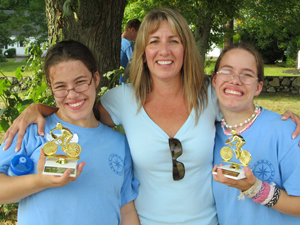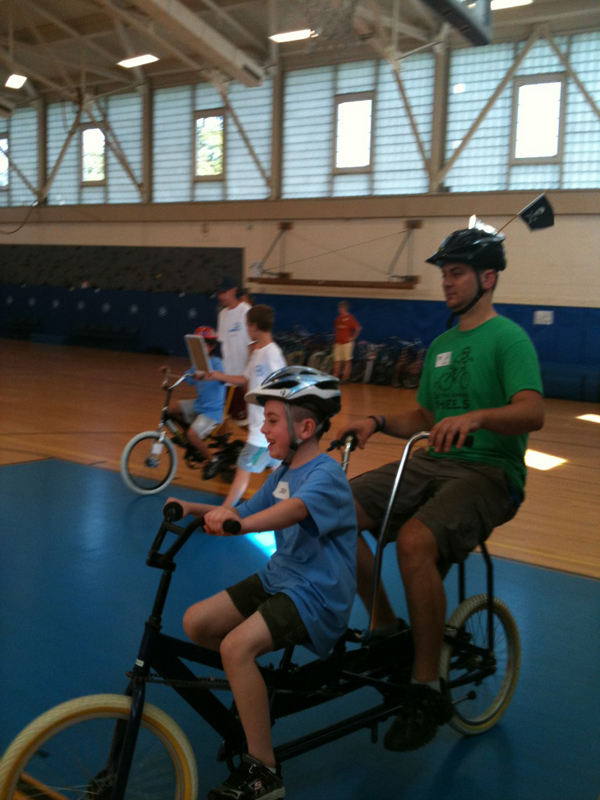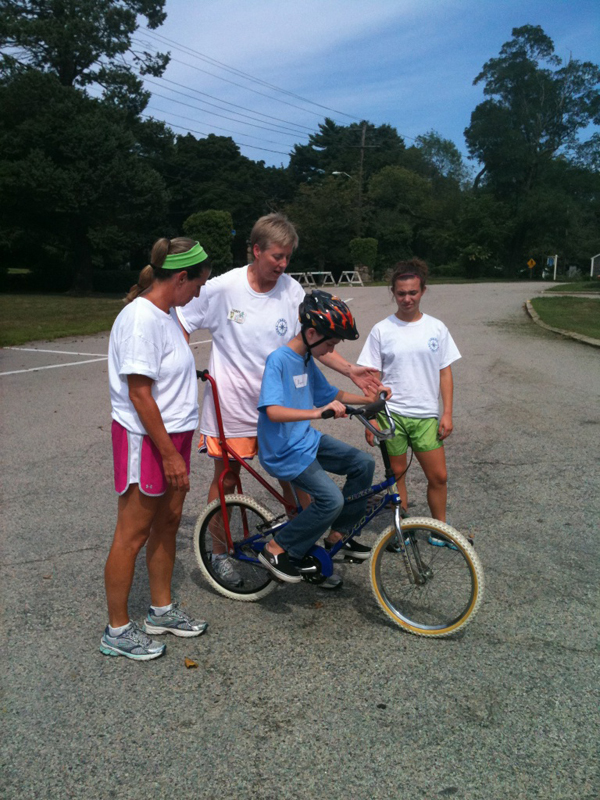
As a parent of a child with special needs, I have often found myself in that painful place of not experiencing the pride and sheer elation of watching my child reach one of life's many milestones with effortless ease.
Remember when you first learned to ride a bike? Do you remember that moment when you realized that the person supporting the back of your bike had let go and you were riding on your very own? I do. I remember that moment as if it were yesterday. After all the hard work, the scraped knees, the falls, I had accomplished this fabulous feat and soon would be able to venture out to places on my own.
Remember how it felt as a parent when you saw your child take off on that two-wheeler, wobbling down the road on their very own, feeling a little scared but oh-so-proud of their accomplishment and knowing that you had just seen them take a major step on the road to independence?
Learning to ride a bike, seemingly such a simple life event, is a major rite of passage in life. Unfortunately, learning how to ride a bike is a rite of passage that remains out of reach for many children with disabilities and their parents. According to the University of Michigan, less than 20 percent of kids with autism and just 10 percent of those with Down's syndrome learn to ride a bike. Four years ago I became involved with an organization that is determined to turn that statistic upside down; the name of this nonprofit is Lose the Training Wheels. The mission of this program is to teach individuals with disabilities how to ride a bike independently, opening up a gateway of opportunity. Not only do 80 percent of the participants of the weeklong Lose the Training Wheels program master the skill of riding a bike, but they move on from the program with a sense of accomplishment that opens up their world to new adventures with confidence and self-reliance.
Six years ago I co-founded the C.O.R.S.E Foundation, the mission of this grassroots foundation to raise funds to provide programs that allow children with disabilities to reach their full potential. We have just finished hosting the third Lose the Training Wheels Camp in Scituate, Mass., since 2008, with the support of C.O.R.S.E. At the completion of this third camp, where over 90 children with disabilities have learned to ride a bike independently, not only have their lives been forever changed, but so have the lives of the parents and the hundreds of volunteers who assist us.
There are no words for what happens that week of camp; you merely have to look at the children's faces, the tears flooding the eyes of the parents, and the air of accomplishment surrounding the volunteers. Too often we focus on what children with disabilities can't do rather than what they can do. With the proper instruction, support, and encouragement, children with special needs can far exceed the expectations that are set upon them.
I have met so many amazing families over the years at these camps, and each and every one of them has their own story. This week I met a single mom with 18-year-old twin daughters who  have Down's syndrome. The mom drove more than an hour every day to bring her daughters to the camp. Both of these identical girls exude friendliness and enthusiasm, but when faced with getting on the bikes the first day, their faces turned to self-doubt and concern. With the expertise of the Lose the Training Wheels staff, they cautiously but firmly committed to the task at hand. They worked hard, they fell, they cried, but on the final day, as they completed their first lap on two wheels, they hopped off their bikes, ran to their mother, and exuberantly shouted, "We did it! We did it!" Everyone present to witness this moment realized that this family, regardless of the challenges and inevitable heartbreaks, had overcome and was enjoying a life moment that everyone is entitled to.
have Down's syndrome. The mom drove more than an hour every day to bring her daughters to the camp. Both of these identical girls exude friendliness and enthusiasm, but when faced with getting on the bikes the first day, their faces turned to self-doubt and concern. With the expertise of the Lose the Training Wheels staff, they cautiously but firmly committed to the task at hand. They worked hard, they fell, they cried, but on the final day, as they completed their first lap on two wheels, they hopped off their bikes, ran to their mother, and exuberantly shouted, "We did it! We did it!" Everyone present to witness this moment realized that this family, regardless of the challenges and inevitable heartbreaks, had overcome and was enjoying a life moment that everyone is entitled to.
Many participants of the program ask me if my son learned to ride a bike at a Lose the Training Wheels Camp, to which I answer no. My son learned to ride a bike the way I learned, with training wheels and a helpful push from his dad. They inquisitively look at me, wondering why I continue to host these camps. The answer is simple: I have stood where they stand, wanting my child to feel the accomplishment and confidence of doing something that so many of us take for granted. For these families, it is riding a bike; for my family the hopes and dreams are different but just as important.

Riding a tandem bike with Lose the Training Wheels Supervisor Pete Batallion

Lose the Training Wheels Director of Operations Dr. Tammy Burt assisting